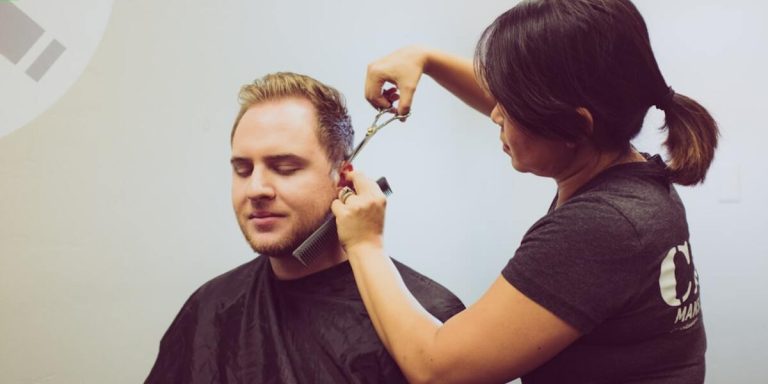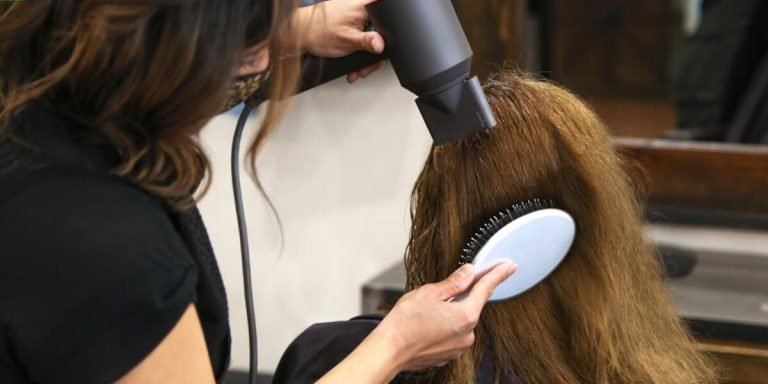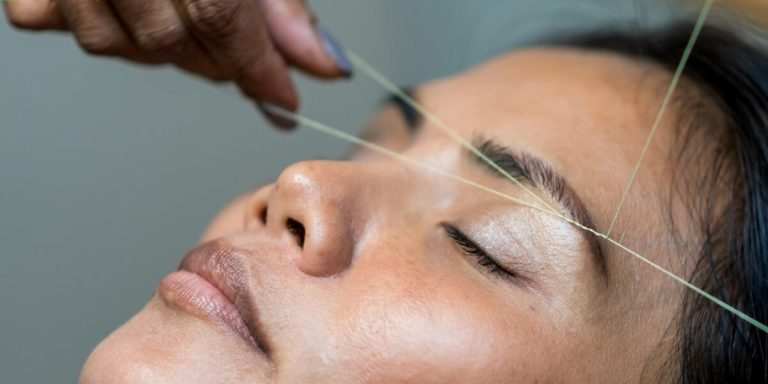Do Water Filters Help Hair Health? Discover the Science Behind It
If you’ve been wondering “do water filters help hair health”, you’re not alone. This question surfaces often, especially amidst rising concerns about harsh chemicals and pollutants in tap water that can damage our tresses over time. To understand the correlation between healthy locks and filtered water, it’s crucial to dig a bit deeper.
The realm of hair care is broad with countless products promising improved vitality, shine, strength – but what role does something as simple as your shower’s building block –water– play? Let’s delve beyond surface-level knowledge into how investing in a good quality filter for your home or even just the sake of your showers could be one transformative step towards better hair health.
Did you know?
Even though it’s not widely known, an interesting fact is that the impurities often present in unfiltered water, such as chlorine and heavy metals can strip your hair of its natural oils causing dryness and damage. Filtering this water before use can promote healthier hair!
The Impact of Hard Water on Hair: Understanding the Need for Filtration
Hard water can be an unmerited culprit behind various hair issues, making the topic of filtration essential in discussions about hair health. The primary concern with hard water is that it has higher levels of harmful minerals such as magnesium and calcium. These elements form a build-up on your scalp and strands over time, leading to problems like dryness, dullness, tangling, or even increased breakage.
One cannot overlook the role clean filtered water plays in maintaining healthy hair considering we wash our locks multiple times per week. By using filtered water for cleansing purposes instead of hard tap water helps eliminate those harsh impurities before they ever touch your tresses.
By indulging in proper filtration methods, you reverse damage from years of exposure to mineral-laden waters. This process restores life to limp locks, making them more manageable and vibrant. In 2023, no one should settle for sub-optimal conditions when better alternatives are available. Treat your hair right by using correct filtration methods. After all, good health starts at the roots and manifests as a radiant halo around your shoulders!
How Minerals in Hard Water Can Damage Hair Structure and Scalp Health
Every day, we expose our hair to multiple external factors that can progressively damage it. Hard water is one of these silent culprits impacting your hair health negatively. When you wash your hair with hard water, the high mineral content – primarily calcium and magnesium – combines with shampoo to form a layer of soap scum on the scalp and strands.
The most visible effect? Your once-lustrous locks looking dull due to an accumulation of minerals which compromise smoothness and shine. But there’s more happening beneath the surface than what meets the eye.
Damages from hard water go beyond appearance, as they also affect the structural integrity of hair and scalp health.
– **Increased Hair Breakage:** Heavy metals in hard water deposit on each strand making them stiff over time resulting in brittle strands prone to breakage.
– **Scalp Build up:** The residue left behind clogs pores causing flaky dandruff-like condition or even itching—an alarming sign for direct scalp exposure increasing risk for fungal/bacterial skin conditions.
– **Inadequate Absorption**: These mineral deposits also limit critical nutrient absorption by acting as barriers further weakening each strand from within—leading not just loss but poor regrowth too!
Comparing Unfiltered vs. Filtered Shower Water Effects on Hair
Showering with unfiltered water often is the norm. However, it’s crucial to understand its impact on our hair’s health, which brings us to a critical question – do water filters help in improving hair health?
Unfiltered shower water carries several unwanted elements like calcium and magnesium ions that tend to dry out your luscious locks. But how does this work? It’s pretty straightforward actually; these hard elements strip away essential oils from our scalp leaving behind brittle strands and a dull look.
Now imagine switching scenarios – enter filtered shower water!
As we step into the domain of clean, pure stream flowing through your head drenching every strand with care – we see significant changes. Filtered shower dramatically cuts down harsh minerals guaranteeing softer, shinier tresses post-shower because these harmful impurities can no longer latch onto cuticle layers causing damage.
When you start using filtered water for showers regularly:
1) You’ll notice less frizz as reduced mineral buildup means smoother strands.
2) Your color treatment will last longer due to minimized chlorine interference.
3) Fewer skin irritations or inflammations owing largely due its gentle nature devoid of chemical content.
Evaluating Different Types of Water Filters for Optimal Hair Care
Engaging in optimal hair care rituals goes far beyond the use of high-quality shampoos and conditioners. One often overlooked yet essential aspect is the quality of water used to wash your hair. With increasing contamination levels, tap water today is laden with a myriad of impurities such as heavy metals, chlorine, bacteria that may cause harm to our hair strands causing dryness, breakage and even dandruff.
As consumers become more aware about this issue, an uptick in interest for home-installable water filters has been observed recently — aiming to ensure not just safe drinking water but also contributing towards enhanced health – including “Hair Health”. While there are several types on the market (such as activated carbon filters or reverse osmosis systems), differentiating between them can be confusing due to technical jargon involved.
By understanding how each type works and matching it with individual requirements considering regional contaminant level specificities will provide significant benefits one seeks from a good filtration system thereby ensuring longevity maintaining vibrant locks!
The Efficiency of Showerhead Filters in Removing Harmful Contaminants
It’s common knowledge that water quality can significantly affect hair health. Unknowingly, many of us expose our hair to a variety of harmful contaminants present in tap water during daily showering routines. This is where the importance of effective showerhead filters comes into play.
How do you think about “do water filters help hair health”? The answer might surprise you—yes, they do! Let’s delve deeper and understand how these nifty devices confer benefits for your tresses.
Showerhead filters are designed to filter out chemicals like chlorine or hard minerals such as calcium and magnesium which can build up on the scalp over time if not properly removed, leading to dryness and breakage. But it’s not just their ability to remove these unwelcome additives from your bathing water that makes them beneficial for hair health—they also seem able to tackle other pesky elements.
Anecdotal evidence suggests there could be an impact on heavy metals too; while no filter will remove 100% of impurities without stripping all beneficial minerals as well – some users have reported noticeable improvements after installing one nonetheless!
Whole-House Filtration Systems – Are They Worth the Investment?
Whole-house filtration systems are an emerging trend in the realm of hair health, touted for their potential to cleanse water of impurities. As it’s 2023 and we’re more conscious about what goes onto our skin and scalp than ever before, let us dive into understanding if they can truly be considered worth your investment.
Firstly, why should you consider investing in a whole house water filter system? The answer lies primarily within its broad spectrum coverage. Unlike other filtering methods that only purify drinking or cooking water effectively, these comprehensive filters target all incoming household water sources – right from kitchen faucets to bathroom showers.
Many people have reported improved hair texture after using filtered shower water provided by such devices. It is because most tap-water incorporates minerals like magnesium and calcium along with chlorine which makes your strands brittle over repeated exposure. By eliminating harmful substances at source-level itself, these systems ensure each drop contributes towards healthier locks rather than damaging them further.
Investing in a quality model does come with benefits beyond just clean drinkable H2O! Regular use reduces buildup on tresses inflicted by hard-water chemicals thereby reducing issues like dryness & brittleness ultimately contributing positively towards maintaining luscious mane-health long-term.
Practical Benefits of Using a Water Filter for Your Hair
Water filters can have a multitude of benefits for your hair health, with the foremost being their ability to filter out harmful contaminants. In our daily lives, we often take showers or baths using regular tap water that may contain dissolved minerals and chemicals such as chlorine. Over time, these substances could build up on your scalp and in your hair strands leading to damaging effects like dullness, breakage and dryness.
Investing in an effective water filter not only helps remove these impurities but also leads to long-term improvements in overall hair quality. Filtered water is typically softer which means it’s less harsh on the locks – no more waking up with frizzy unruly tresses! Moreover, you might even notice stronger shinier growth as the filtered soft water doesn’t strip away natural oils unlike hard unfiltered tap waters tend to do.
Install a reliable home filtration system for bathing to foster healthy hair naturally. This approach eliminates the need for expensive salon treatments or operations. Water filters indeed help hair health, especially with rising pollution levels in 2023, by maintaining optimal strand vitality through healthier shower practices.
Softened Water’s Role in Nourishing and Revitalizing Dull, Brittle Strands
The wonders that softened water can do for hair health often go unnoticed. When we talk about the phrase “do water filters help hair health,” we are actually referring to how these devices remove harsh minerals and chemicals from tap water, yielding softer or conditioned H2O. It’s this softened liquid whose merit in enhancing our tresses’ wellbeing will be emphasized herein.
Secondly, think about every time you use shampoo; imagine if you could make it lather up more easily while using less product! That’s another pro of bringing into play soft dihydrogen monoxide: improved soap efficiency! By introducing an at-home filtration system, not only would one prevent wastage but also diminish instances of residual buildup which might obstruct follicle pores over time thus promoting growth longevity.
Reduction of Scalp Irritation and Flakiness with Filtered Water Use
Using filtered water on your hair can significantly reduce scalp irritation and flakiness. It’s an aspect that isn’t often considered, but it truly does wonders for maintaining healthy, luscious locks.
Firstly, unfiltered water contains a slew of harsh chemicals like chlorine and heavy metals such as lead or mercury. These substances are known to strip the natural oils from your hair which could leave our scalps feeling irritated and dry. On the flip side, when you rinse with filtered water these harmful elements get eliminated leaving only soft clean H2O to interact with your tresses.
Filtered water helps balance pH levels too! Unbalanced pH levels in tap water can disrupt our scalp’s natural acidity leading to itchiness and dandruff proliferation. But by utilizing a good quality shower filter we ensure this equilibrium remains undisturbed promoting overall healthier scalp conditions.
Keeping your hair hydrated is essential for achieving a silky smooth texture, and people are increasingly recognizing the importance of water filters in this process according to 2023 trends. Hard minerals from unfiltered tap water can attach to hair cuticles, leading to stiffness and frizziness as strands stick out erratically. This can make your hair more prone to breakage due to lost elasticity. Adequately moisturized hair is stronger, sheds less easily, and maintains its shine longer.
Conclusion
In wrapping up, it’s quite clear that the question “do water filters help hair health” can be answered affirmatively. With science backing us every step of the way, from mitigating harmful chlorine exposure to instilling much-needed minerals in our shower water, it turns out your bathing routine could become a cornerstone for healthier and happier locks.
But don’t stop here! We invite you to meander through our website where we’ve got an abundance of information on various dimensions of Hair Health waiting at your fingertips. Take a deep dive into even more ways you can protect and nourish your crowning glory – because truly understanding what works best for your specific needs will lead to nothing short but remarkable transformations!







